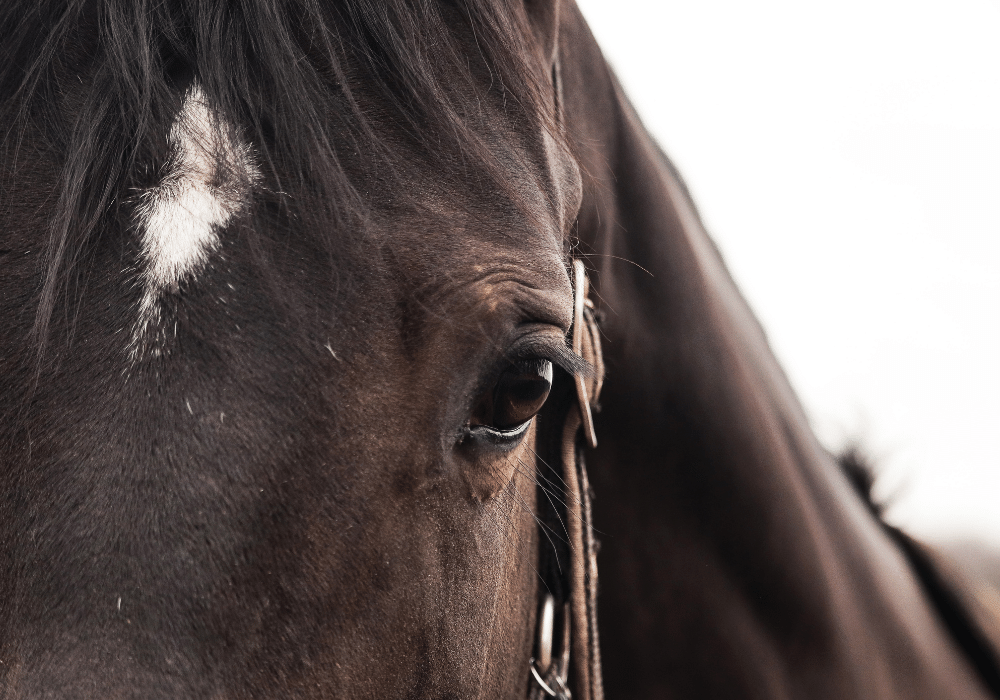Equine strangles is highly infectious, and it can affect horses, ponies or donkeys of any age or breed. Whilst most cases see a full recovery, complications can lead to a higher mortality rate. Furthermore, strangles is extremely disruptive to equestrian yards and businesses so prevention is vital. This blog article outlines the importance of equine strangles awareness, and introduces the symptoms and treatment of equine strangles.
What is Equine Strangles?
Strangles is a highly infectious respiratory tract infection, caused by the bacteria Streptococcus equi. It can affect horses, ponies and donkeys of any age and breed. Disease severity varies, with most uncomplicated cases seeing a full recovery. Complications can lead to a higher mortality rate, and the infectious nature of the disease means that prevention is vital.
Understanding the Symptoms of Strangles in Horses
Knowing the symptoms of strangles is key to early identification and treatment. There are a few key symptoms of strangles in horses, although symptoms do vary from horse to horse. The most common symptoms include:
- A sudden onset of fever
- Nasal discharge
- Lethargy and depression
- Laboured breathing and difficulty swallowing
- Abscess formation in the head and neck
The disease is characterised by swelling of the horse’s lymph nodes and the formation of abscesses in the head and neck, both of which can compress the upper respiratory tract. You can learn more about the symptoms of strangles in horses with our guide.
Equine Strangles Treatment
In most cases, equine strangles is treated with rest and supportive care, but severe or complex cases may require hospital admission. Anti-inflammatories such as Bute may be administered to help with pain relief. Soft, moist feeds may be easier for the horse to eat.
Equine strangles' ability to spread makes it even more paramount that it is both managed and treated properly. Furthermore, it is vital that horse owners and yard managers are proactive in order to prevent an outbreak. Routine biosecurity protocols should be implemented, and any new arrivals isolated and monitored closely. Should strangles be suspected or confirmed, then biosecurity measures should be stepped up to minimise the spread of the disease to other horses or premises.
We have more information on equine strangles treatment and biosecurity in our dedicated guides.
What is the Impact of Equine Strangles on Equestrian Businesses?
Not only is strangles a potentially fatal disease, it can also have a huge impact on equine businesses. Strangles can spread rapidly throughout a yard, and to other yards in the vicinity. It can be spread by horse-to-horse contact, or indirect contact, for instance through shared tack, drinking water and clothing.
Any yard that suspects strangles should contact other yards in the vicinity and immediately isolate the affected horse. No horses should be taken off the premises, nor should any horses be allowed to enter the yard.
This can have a hugely detrimental impact on livery yards and competition venues, especially if more than one horse contracts the illness, which can result in a much longer lockdown period. Owners may wish to have their horses tested before moving them to a strangles-free yard leading to a loss of revenue, while competitions, clinics and lessons will all need to be put on hold.
Horses with strangles must be allowed time to rest, which means riding school horses are unable to work. Competition horses will not be allowed to leave the premises, potentially causing them to miss important qualifiers or championships. A widespread outbreak will put a hold to competitions and clinics, potentially leading to the breakdown of equestrian businesses.
The Strangles Vaccine for Horses
A strangles vaccine is available and can be used to provide individual protection. The Strangvac vaccine is 94% effective at preventing or reducing infection in vaccinated horses, reducing clinical signs and helping horses to recover faster should they come into contact with strangles.
Strangles Awareness Week
Equine Strangles Awareness Week is a global initiative taking place in the first week of May every year. The initiative has been put together with the aim of improving the equestrian community’s understanding of strangles, helping horse owners and equine business owners to both prevent and manage the condition. For more information, resources, and to sign up, please visit the link below:
Find out more about Strangles Awareness Week
Routine Healthcare, Vaccination & Biosecurity Advice
Avonvale Equine Vet Practice is an independent, equine-only vet practice offering routine and emergency vet care to all equines. We also offer free weekly zone visits for routine, non-emergency requirements. If you require advice on the new equine strangles vaccination or wish to find out more, please contact 01295 670 501.
Register your horse, pony, donkey or mule with us online today.









